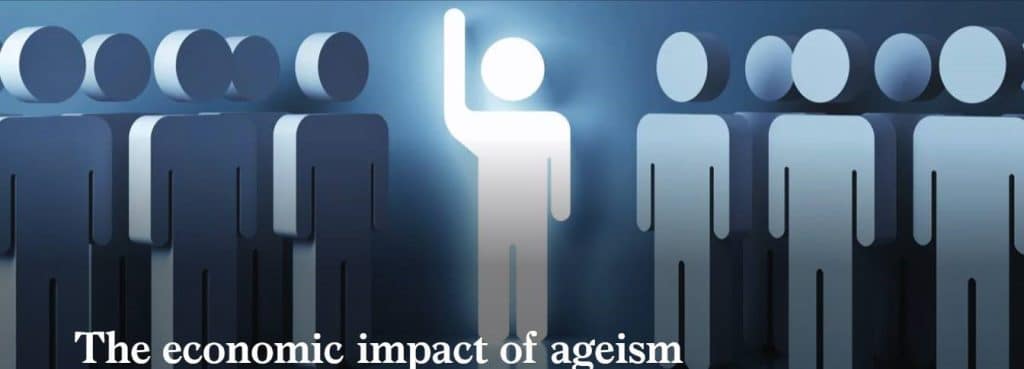|
The economic impact of ageism is real – check out this story from McKinsey about age discrimination. |
|
| • |
Not the same job market. For older workers, the hot job market is just lukewarm. Roughly one-third of US job seekers aged 55-plus remained unemployed for at least 27 weeks as of January, compared with about 22% of younger workers. Age discrimination is persistent. Even those who think racism and sexism are unacceptable in the workplace still hold ageist attitudes toward older employees, academic research has found. Some older workers are fighting age bias by maintaining a youthful appearance, while others highlight their mentoring skills. [WSJ] |
|
|
| • |
‘Acceptable’ ageism. “It is still perfectly acceptable in polite society to be rampantly ageist,” argues Financial Times contributing editor Lucy Kellaway. Prejudice against older people is so widespread that no one even lifts an eyebrow when assumptions are made about older workers being “bad at tech” or inflexible. In fact, one out of every two people in the world harbors ageist attitudes, according to a 2021 World Health Organization report. What’s perplexing about age discrimination is it only hurts our future selves, Kellaway asserts. [FT] |
|
|
| • |
‘Ageism is real.’ “[Ageism] is global, whether you are an emerging market or you are an OECD country,” says Mona Mourshed, CEO of Generation, a nonprofit that provides free job training. Generation’s 2021 report found that workers aged 45-plus face an uphill battle toward employment—and that was true for all countries surveyed. In fact, 63% of midcareer workers were unemployed for over a year, compared with 36% of workers aged 18 to 34. But even though bias against older workers is widespread, only about 50% of companies include age as part of their diversity, equity, and inclusion strategy, Mourshed added. |
|
|
| • |
A striking finding. One of the most striking findings from the report was that even though hiring managers think that older workers perform well on the job, they are also much less likely to extend an offer to older candidates. Recruiters consistently rated only about 15 to 18% of workers aged 45-plus a fit for the role they were hiring for. Yet when asked about the performance of older workers who were already on staff, HR leaders said that nearly 90% performed as well or better than their younger peers, says Mourshed. To learn what employers can do to hire, retain, and retrain older workers, read the full interview. |
|
|
| — Edited by Belinda Yu
Source: McKinsey |
Subscribe to our Weekly Newsletter
Subscribe to Our Weekly Newsletter by clicking here.


